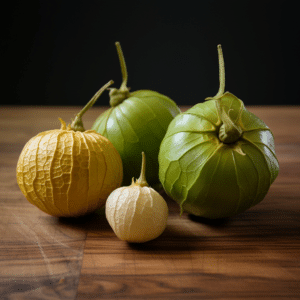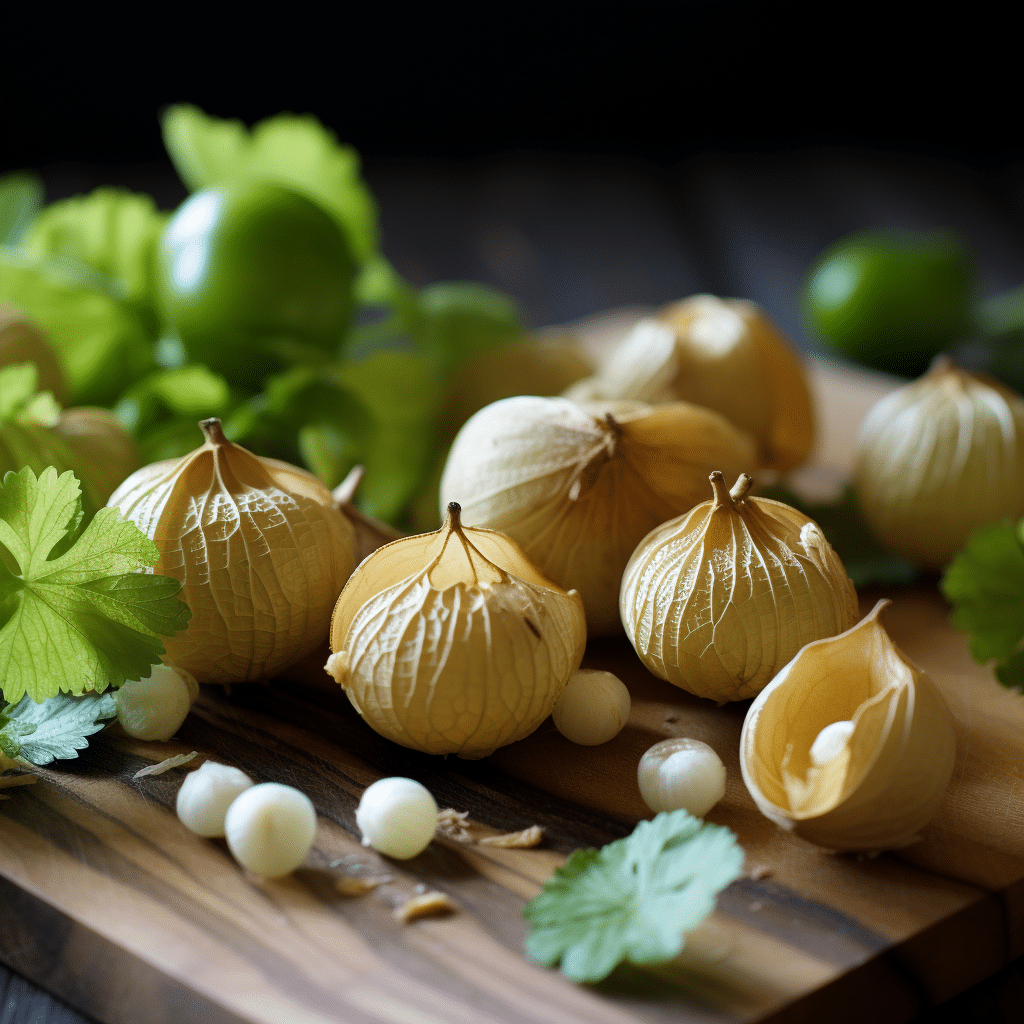Tomatillo vs Ground Cherry: Contrasting Features and Uses
Tomatillo is a small, spherical, green, or green-purple fruit covered by a husk. It belongs to the nightshade family. Tomatillo is also known as Mexican tomato. Ground cherry, also known as cape gooseberry or husk cherry, is a much smaller green fruit covered with a papery husk. It also belongs to the nightshade family.
Tomatillo and ground cherries differ in size, taste, use, and color. Their main similarities are that they belong to the nightshade family, are covered by a papery husk, and are green before ripening. Below, we compare and contrast tomatillo and ground cherry.

Tomatillo Vs. Ground Cherry: Overview
They Belong To The Nightshade Family
A nightshade family is a group of plants that prefer to grow at night and in shades, as the name suggests. There are more than 2,000 plant species in this family. They include; tomatoes, potatoes, eggplants, and peppers.
They Are Covered With Papery Husks
Tomatillo and ground cherries are covered by papery husks that turn yellowish when the fruit ripens. The husk protects the fruit as it grows.
They Are Green Before Ripening
Both tomatillo and ground cherry are green before ripening. Tomatillo may sometimes turn green-purple.
Differences Between Tomatillo And Ground Cherry
Size
Tomatillo is large, growing to 5cm in diameter, and its plant can grow up to 1.5M(60 inches). Ground cherries are smaller than tomatillos with an average size of 2cm. The plant averages at 0.9M(30 inches).
Color
Tomatillo remains green after ripening, with some varieties turning yellow or purple. Ripe ground cherries are yellow or pale orange. The husks dry and fall off when the fruits ripen.
Taste
Unripe ground berries are tart. When they ripen they taste sweet with a tropical fruit dash. The taste is anything between pineapple, kiwi, and grape. They are often not edible while unripe. Ripe tomatillo has a sweet, tart, and earthy flavor. Roasted tomatillo tends to get sweeter, while boiled ones retain their tart taste.
Leaves
Tomatillo plant has oval to diamond-shaped leaves with somewhat toothed margins with little or no hairs. The ground cherry leaves are heart-shaped and hairy.
Uses
Tomatillos are versatile and can be used in several ways. You can eat them raw, top-up salads, make curries and stews, make soups, and juice them. You could also make a tomatillo smoothie. When roasted, it could be served as a side dish. Tomatillo is acidic and tart and is therefore not so pleasant when eaten raw. Cooking cuts down the acidity in tomatillos. Ground cherries are best eaten raw.
They have a sweet, fruity taste that is pleasing to taste buds. You can use ground cherries for your salad, for your favorite cake, and as an appetizer. Ground cherries are less acidic but have a tart taste when unripe.
Nutrition Facts
Tomatillo
One 34-gram tomatillo has 11 calories, 1.99 grams of carbohydrates, 0.65 grams of fiber, 1.34 grams of sugars, 0.347 grams of fat, and 0.33 grams of protein. There is no fat, Vitamin B12, or Vitamin D in tomatillo. It has a lot of nutrients, like calcium, salt, copper, iron, and phosphorus.
Ground Cherry
One cup of ground cherry(140gm) contains; 74 calories, 16gm carbohydrates, 3gm proteins, and 1 gm of fat. They also contain calcium, iron, phosphorus, Vitamin A, B, and C. Ground cherries have no cholesterol.
Health Benefits
Ground Cherry
Ground cherries have several health benefits. Contain phytochemicals that have anti-inflammatory properties. Boost body immunity and hence help in fighting diseases and infections. They contain antioxidants that fight free radical cells that help fight cancers such as breast, prostate, and lung cancer. Ground cherries contain Vitamin C, which aids in the absorption of iron in the body. These cherries may help to maintain proper heart health and bone density, among many other health benefits.
Tomatillo
In many ways, tomatillo is good for your health, just like ground cherries. Tomatillo is a good source of vitamins, fights cancer, and helps fight diseases that make your body weaker over time. Since tomatillos are high in beta carotene, they can help you see better. The antitumors or antioxidants could help stop cancer cells from growing, and the anti-inflammatory properties could be used to treat gout and rheumatism. They might help bring down blood sugar and make the heart healthy. Because it has proteins, tomatillo may help digestion.
Storing Tomatillo And Ground Cherry
If the tomatillo and ground cherry is unripe, they can be stored at room temperature with the husks. Put them in a bag, and put them in a cool place, away from direct sunlight. For ripe fruits, wash and dry them well. Put them in an airtight plastic bag, and refrigerate or freeze. Avoid freezing or refrigerating unripe fruits. You may opt to make puree or just blend ripe fruits and freeze them. You can also dry and store them.
Possible Side Effects
People think that eating a lot of tomatillos and ground cherries is healthy. But people have been said to have allergic reactions. Don’t eat tomatillos or ground cherries if you are allergic to other foods in the nightshade family, like tomatoes, potatoes, and peppers. Allergies can cause itching, diarrhea, swelling, vomiting, and hives.

A Summary Of The Differences Between Tomatillo And Ground Cherry
| Description | Tomatillo | Ground cherry |
| Size | Large- upto 5 cm | Small- upto 2 cm |
| Color | Green with Yellow or purple varieties | Yellow or orange |
| Uses | Making sauces | Eaten raw and in salads |
| Leaves | Oval-shaped with little or no hairs | Heart-shaped and hairy |
| Plant size | Tall | Short |
| Taste | Tart-like and acidic | Sweeter and less acidic |
In conclusion, both tomatillos and ground cherries are in the nightshade family, but they are different in size, color, flavor, and taste. But they are both green before they are ready, have papery husks, and are good for your health in many ways.






